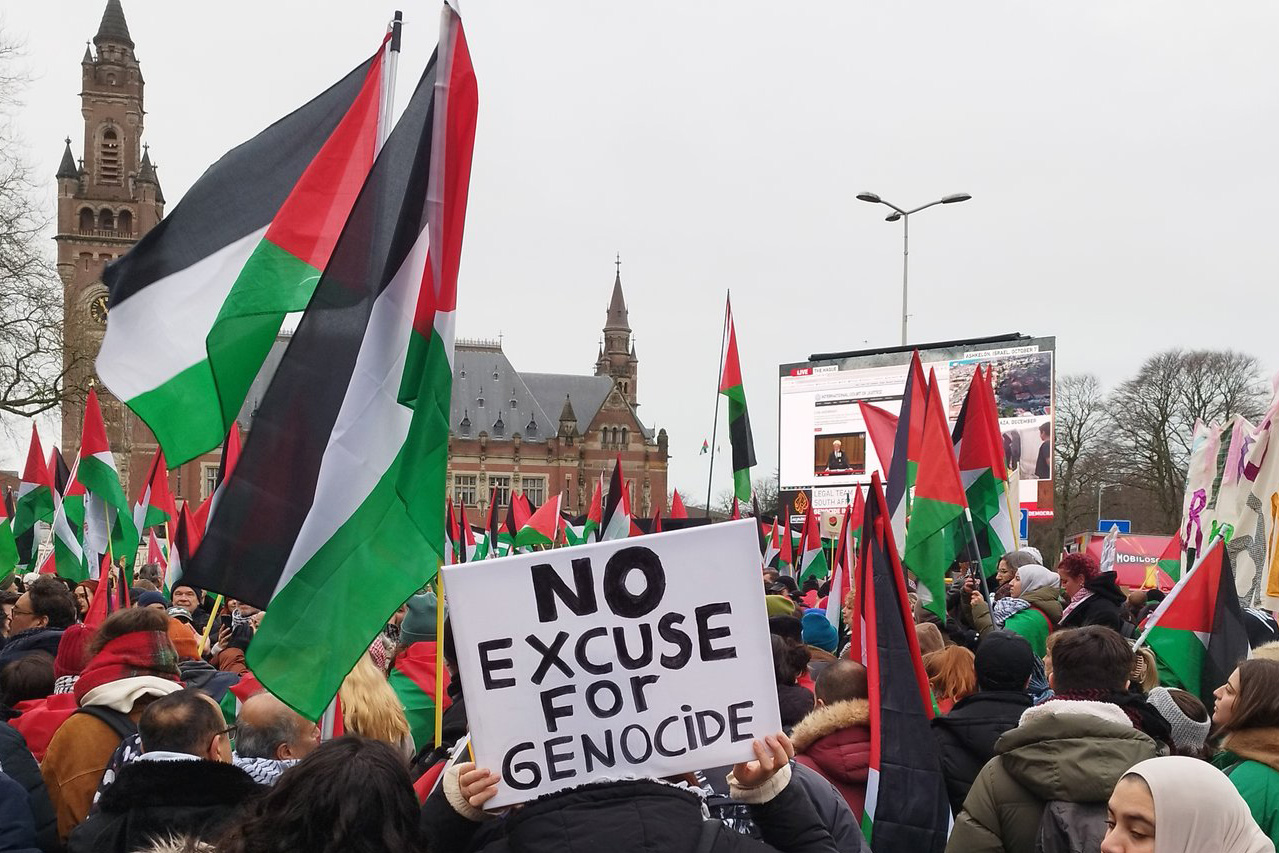
South Africa’s landmark genocide case against Israel has attracted the support of millions of people worldwide, who are desperate to see an end to the horrors in Gaza. Israel’s international reputation has received a blow from which it may never recover. But a blow is also being prepared for the whole edifice of international law, which is impotent to stop these atrocities.
Israel on trial
The International Court of Justice (ICJ) is the most important court of the United Nations, which adjudicates disputes between its 193 member-states. It is, in effect, the closest thing there is to a ‘world court’. Unlike the International Criminal Court (ICC), which also sits in The Hague, the ICJ does not prosecute individuals. Rather, its decisions are ‘binding’ on the parties, although the court has no means of enforcing its decisions.
In an application submitted on 28 December, South Africa alleges that the state of Israel has committed or allowed to be committed acts that breach the ‘Convention on the Prevention and Punishment of Genocide’, which was drafted in 1948 in response to the horrors of the Holocaust.
The purpose of last week’s hearing was not to decide on whether Israel is committing a genocide in Palestine. That question will likely be kicked into the long grass for years to come. Instead, the court has been asked to order ‘provisional measures’, intended to prevent further “irreparable harm” being suffered by Palestinians in Gaza.
The significance of this case, and of the parties involved, is immediately recognisable. The black majority of South Africa has experienced centuries of dispossession, enslavement and colonial oppression, and its present government came to power as a result of the defeat of the brutal Apartheid regime by a revolutionary movement of the black working class.
The state of Israel was established in 1948, in the wake of the genocidal extermination of 6 million Jews in the Holocaust. Since then, it has expanded its territory through the violent dispossession of Palestinian land. The Palestinian people have been forced into smaller and smaller enclaves, which are constantly subjected to military occupation, blockade and bombardment by the Israeli ‘Defence’ Force. This brutal oppression has even drawn direct comparisons with South African Apartheid, which Israel supported throughout its existence.
This case also represents an immense embarrassment for the self-appointed defenders of the liberal, ‘rules-based world order’, who have sought to rally the entire world against ‘genocide’ and ‘crimes against humanity’ allegedly perpetrated by Russia in Ukraine, only to back with arms and funding the slaughter of tens of thousands and the displacement of almost the entire population of 2 million people in Gaza.
No wonder then that the US, the UK, Canada, and Germany have indignantly dismissed South Africa’s case as “completely without any basis”. And as if to underline the point, mainstream western media outlets such as the BBC and CNN did not broadcast any of South Africa’s submissions at the hearing, although they made sure to broadcast Israel’s response the next day.
The German government has even announced that it intends to intervene in the final genocide hearing as a ‘third party’, claiming that, having carried out the most infamous genocide in history, it now has some special moral authority on the matter. This astonishing arrogance has been confronted by Namibia, a former colony of Germany, which condemned the “shocking decision” to intervene and reminded the world that Germany committed another genocide on its soil between 1904 and 1908.
Deepening divide
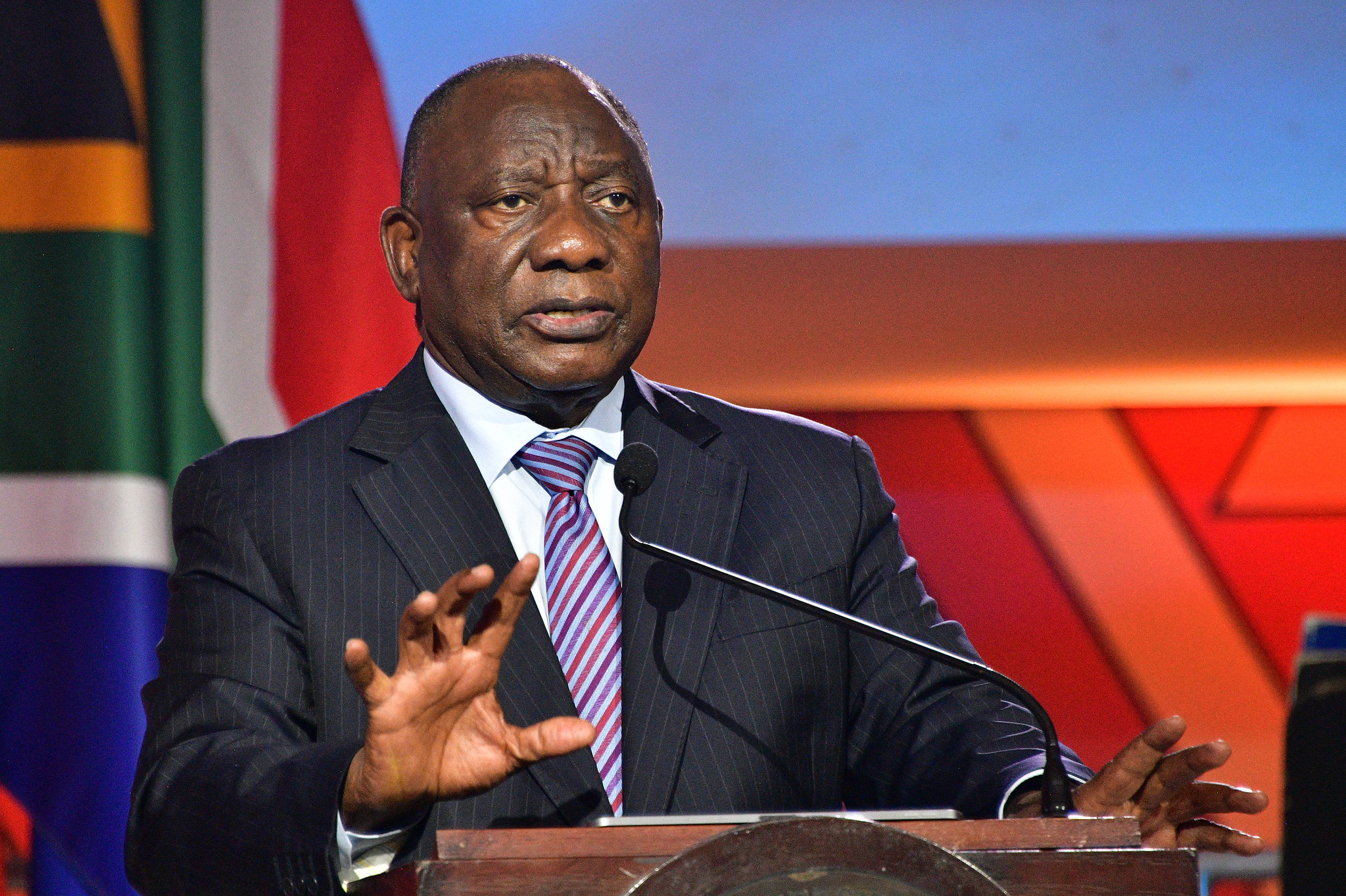
The case has therefore deepened the split between the former colonial powers of the West and the rest of the world. One need only glance at the list of countries who have publicly given support to South Africa’s application (the Arab League, Bolivia, Colombia, Brazil, Pakistan… the list goes on), and the handful who have come out in support of Israel, to see this case has effectively become a political battle over the crimes and hypocrisy of western imperialism itself. The only possible result, irrespective of the judgement of the court, will be to further the isolation of the USA and its allies.
The ANC government in South Africa undoubtedly has its own reasons to project itself as the foremost defender of Palestinian rights, both at home and abroad, and it must be said that taking Israel to a toothless international court falls far short of what is really required to support the Palestinian struggle for freedom.
Nevertheless, the case has provided a glimmer of hope for millions of people around the world, who have protested in huge numbers against their own governments’ involvement in the slaughter. The ‘Peace Palace’ where the court sits was surrounded by thousands of protestors, who greeted South Africa’s submissions with cheers.
For months, those who support the fight for Palestinian freedom have been attacked as antisemites and terrorist sympathisers. Some have even been arrested. To see Israel effectively on trial will understandably have offered them a certain sense of vindication.
Genocidal acts
At the hearing on 10 January, South Africa’s legal team set out the three basic elements of their case. First, they argued that Israel is committing acts that fall under the terms of the Genocide Convention, such as killing members of a group, harming them, or creating conditions calculated to bring about their physical destruction.
In support of this argument, South Africa’s advocates provided a concise but horrifying picture of the “living hell” that Gaza has become. It has been subject to “one of the heaviest conventional bombing campaigns in the history of modern warfare”, with 6,000 bombs deployed a week, including ‘dumb bombs’ dropped on residential areas. At the time of the hearing 23,210 people had been killed as a result, of whom 70 percent were women and children. Thousands more are missing, presumed dead under the rubble.
Israel’s onslaught has made the whole of Gaza uninhabitable. So many buildings have been destroyed that “Gaza is now a different colour from space”.
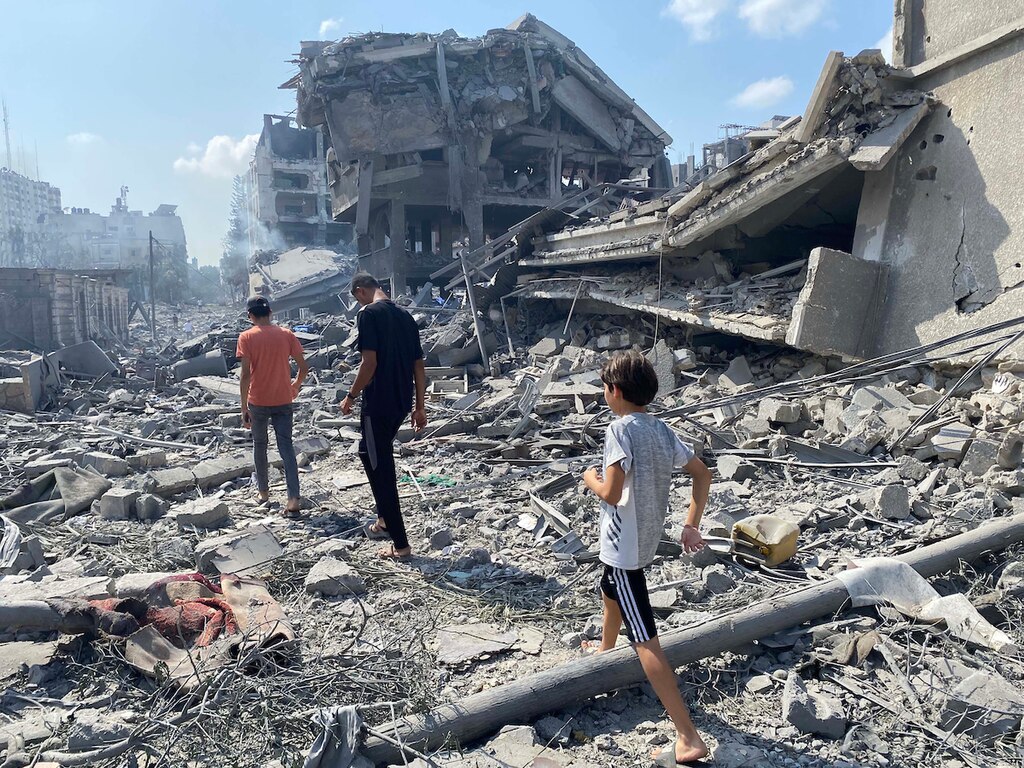
Israel has made the distribution of medical aid, food, water and fuel within Gaza impossible, both by restricting entry and by destroying roads to the point they are impassable. Health infrastructure has been wrecked, leaving the 60,000 people maimed by Israeli bombs in a dire situation. The court heard nauseating reports of amputations and caesarean sections being conducted in “barely functional” hospitals, without anaesthetic, in scenes “resembling something from a horror movie”. This is not to mention the lack of sanitation, with a reported 2,000 percent increase in instances of diarrhoea among children under five combining with rampant malnutrition into a deadly cycle of pestilence and famine.
As much as 93 percent of the Gazan population face “crisis levels of hunger”, constituting 80 percent of all people worldwide in such a condition. The few aid trucks able to access Gaza are immediately set upon by desperate, starving people, as the court was shown in footage. Breastfeeding mothers cannot produce milk, and so mix formula with contaminated water, or increasingly commonly, give their babies nothing at all.
Indeed, experts warn that “deaths from starvation and disease risks are significantly outnumbering deaths from bombings.” Meaning, even if the war ends tomorrow, over 60,000 casualties might already be inevitable. And the war will not end tomorrow.
But for these heinous acts to constitute genocide South Africa would need to show that Israel is deliberately attempting to destroy a national or ethnic group “in whole or in part”. In support of this, the South African legal team set out a “calculated pattern of conduct indicating a genocidal intent” in relation to Palestinians in Gaza, who form a significant part of the Palestinian nation.
Far from an imposed silence, South Africa noted “repetition of genocidal speech throughout every sphere of state in Israel.” For instance, Prime Minister Benjamin Netanyahu told troops preparing to enter Gaza: “remember what Amalek has done to you”, referencing a story where the ancient Israelites are instructed by God to annihilate the neighbouring Amalekites, down to slaughtering their women, children and cattle.
Social media footage was cited of IDF soldiers calling for Gaza to be “erased”, celebrating the destruction of civilian homes, and taunting the Palestinian people. Israeli politicians and the press were referenced stating there are “no innocents” in Gaza; that “pregnant women and babies are also enemies”; and calling for nuclear strikes.
Beyond explicit statements of genocidal intent, South Africa’s application also referred to the bombing of areas that Israel itself had directed civilians to travel to as ‘safe’ zones, and the herding of an immense number of people in areas plainly unfit for human habitation, as suggestive of the intention to destroy Palestinians in Gaza as a group.
However, the purpose of this hearing was not to establish whether Israel had in fact committed genocidal acts, but rather whether there was at least a plausible risk that these acts could take place, necessitating urgent measures to prevent genocide.
The need for these measures formed the third basic element of South Africa’s application, that without the ordering of provisional measures to stop the slaughter of Palestinians in Gaza and distribute food and aid, there was an urgent risk of irreparable harm being done to them.
In her submissions, South Africa’s advocate, Blinne Ní Ghrálaigh, not only pointed to the fact that “on the basis of current figures, on average 247 Palestinians are being killed and are at risk of being killed each day”; she also drew on past decisions of the court to show that in other cases of lesser severity, such as Russia’s invasion of Georgia in 2008, the ICJ had ordered provisional measures. This posed the question quite clearly: would the court be prepared to take action when the state in question is a key US ally?
Israel’s response
The following day, Israel’s legal team presented its defence.
Beyond accusing South Africa of having “close relations with Hamas”, they predictably emphasised Israel’s right to self-defence in the wake of 7 October, and claimed that Israel, not the Palestinians, faced a genocidal act. In other words, they say the most heavily armed state in the region is under immediate threat of destruction from rag-tag militants hiding in a half-obliterated, open-air prison.
In fact, Israel wanted to begin its submissions with a screening of its well-known film of Hamas atrocities on 7 October. When this was denied by the court it became apparent that Israel’s defence team did not have much more to say.
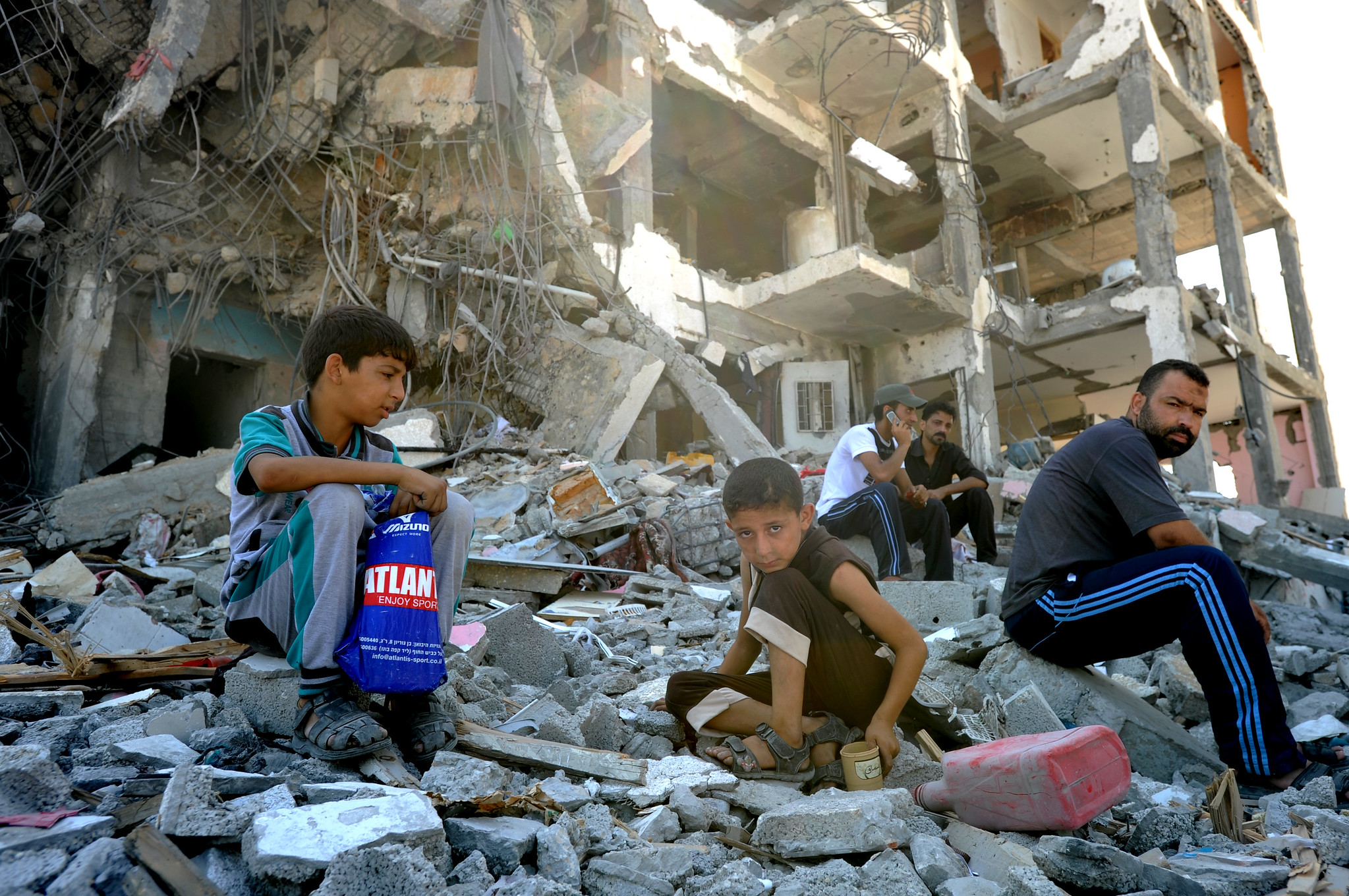
Israel did not deny the scale of the death and destruction in Gaza, but predictably laid the blame on Hamas’ alleged ‘human shield tactics’. In fact, by this argument the Israeli defence team were in effect admitting to the intentional destruction of civilian infrastructure and the killing of Palestinian civilians as legitimate military targets. They coined a telling phrase when they claimed that thousands of those killed by Israel were, “civilians taking part in hostilities.”
On the destruction of medical infrastructure, Israel cited the “overwhelming evidence of Hamas’ use of hospitals” as command centres: a claim repeatedly challenged, even by Israel’s allies in Washington.
On the question of intent, Israel waved away genocidal statements by politicians, journalists and soldiers as simply war-time rhetoric, said in the “heat of the moment”. Presumably, this was just meant for ‘internal consumption’, and should be ignored by the outside world.
Israel’s real intentions, the court was told, were not to be found in public statements by both the President and the Prime Minister, nor in the explicit aims of military commanders, nor even in the words of the soldiers doing the killing. Instead, Israel’s policy was to be found in the minutes of a War Cabinet meeting, in which Netenyahu apparently said “we must prevent a humanitarian disaster”. Whether those present in the meeting laughed or not was not recorded.
In any event, Israel’s advocate argued, there was no need for provisional measures, because Israel has “facilitated” the entry of more aid into Gaza. The apocalyptic famine in Gaza is an inconvenient chink in this iron-clad defence, but Israel has an answer to everything it seems, and the answer is always the same: Hamas did it!
In fact, Israel’s main defence has nothing to do with the allegations raised by South Africa. Rather, Israel denied that the ICJ even had jurisdiction, because there was “no dispute” between the parties.
Apparently Israel offered to arrange a diplomatic meeting in order to have a friendly discussion on the matter, and South Africa rudely submitted its application before that meeting could take place. For this reason, Israel argued, South Africa had failed to follow the correct procedure and the ICJ could therefore take no decision at all on either the merits of the case of genocide, or on the question of provisional measures.
The Israeli defence can therefore be summed up as: “If we do wipe out the Palestinian population in Gaza, this would be the opposite of what we intended to happen, although it would be entirely the fault of the Palestinians anyway, and completely justified by Israel’s right to defend itself against Hamas, and in any event, you have no right to stop us!”
No illusions
The panel of 17 judges, including two added by the parties themselves, will now deliberate for several weeks before reaching their decision by a majority vote. Prime among their concerns will be how they can preserve the reputation of the court, when any decision they do make will be politically explosive.
In reality, this case represents a crisis for the ICJ, and the entire edifice of so-called ‘international law’. To reject South Africa’s application in its entirety would be to announce to the world that a state can massacre tens of thousands of innocent people from a single ethnic group, all without even a plausible risk of genocide taking place. Rather than making Israel’s war respectable, it would simply make the ICJ complicit in Israel’s unspeakable acts.
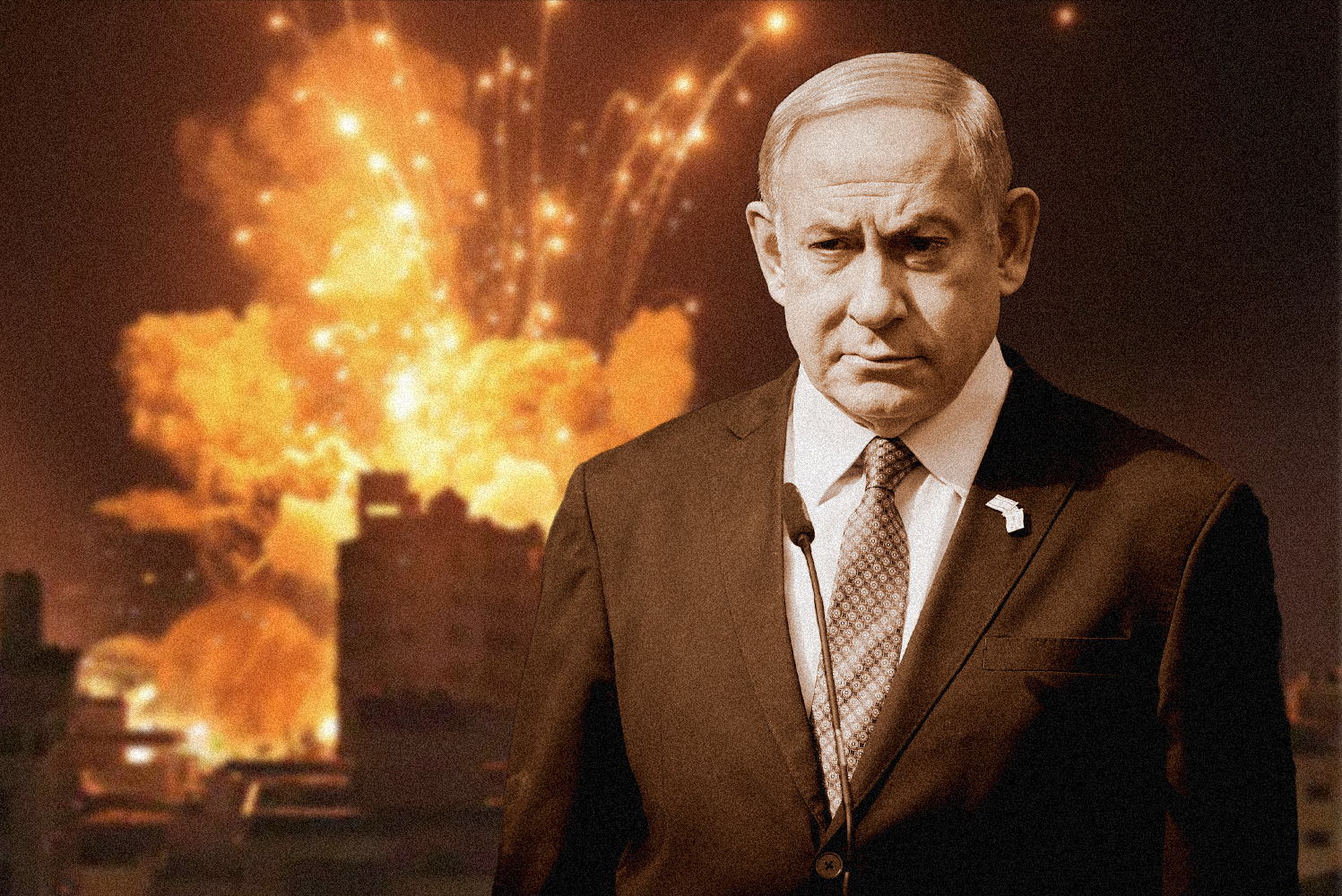
Even if the court were to try to wriggle out of making a decision on the merits of the case by accepting Israel’s spurious argument that the court does not have jurisdiction, this will be seen (correctly) as a spineless attempt to avoid responsibility. In effect, it would be a silent endorsement of the forced displacement and murder of Palestinians in Gaza.
The granting of provisional measures, even short of what was requested by South Africa, would amount to official recognition that there is at least a plausible risk of genocide being committed against Palestinians in Gaza, which completely explodes Israel’s propaganda war, based on the constant repetition of its ‘right to defend itself’.
But such an order would ultimately only serve to show the complete impotence of the court. The enforcement of ICJ decisions is left to the UN itself and, specifically, the Security Council, of which both the US and the UK are permanent members with veto rights. Any measures ordered against Israel would therefore remain a dead letter, just like every UN resolution passed against Israel’s occupation.
Netanyahu made his position quite clear when he told journalists, “We will continue the war in the Gaza Strip until we achieve all our objectives. The Hague and the axis of evil will not stop us”.
This is why we must disagree with the statement of South African advocate, Adila Hassim, that “nothing will stop this suffering, except an order from this court”. We cannot have any illusions in the institutions of international law, which in the last analysis amount to nothing other than a fig-leaf for the major powers.
If the fate of the people of Gaza hangs on an order of the ICJ then they are doomed. Only the workers of the world can stop Israel’s onslaught, not by appealing to imperialism to restrain itself but by giving all the support we can to the revolutionary struggle of Palestinians for their homeland, and by fighting to overthrow imperialism everywhere.

